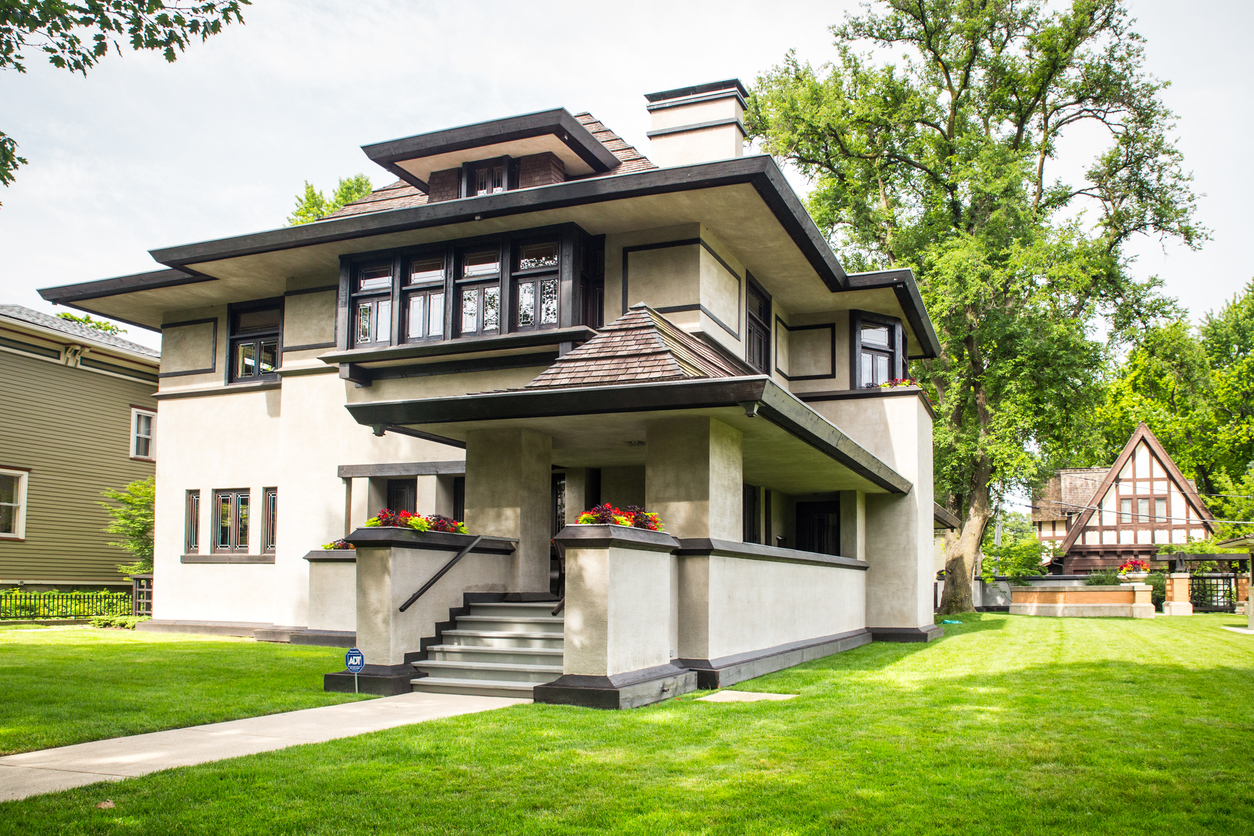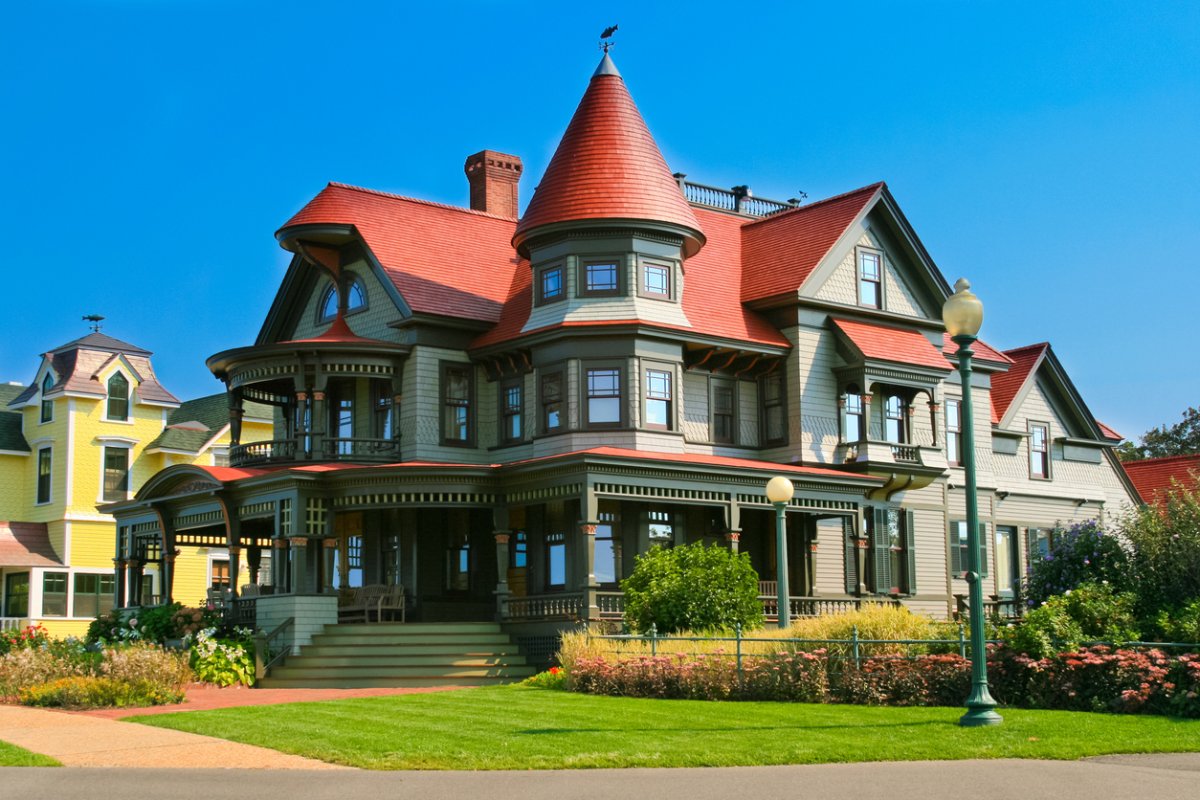We may earn revenue from the products available on this page and participate in affiliate programs. Learn More ›
While owning a historic home presents a unique set of challenges, it also holds significant charms. Some are attracted to the detailed craftsmanship and character of these houses, features that are rarely found in newer construction. Others may be drawn to the historic importance of a house and to the stories it has to tell. Either one of these motivations—architectural significance or historic importance—can lay the foundation for getting your home on the National Register of Historic Places.
Almost every county in the United States is represented in the National Register of Historic Places, and there are nearly 100,000 properties listed. Although the list is impressively long, the application process isn’t necessarily easy, and there are benefits and drawbacks to owning a listed house.
Keep reading to find out what you need to know about securing your property a spot on the National Register of Historic Places.
What is the National Register of Historic Places?
Created to protect the nation’s historic places and archaeological resources, the National Register of Historic Places is a list of more than 96,000 properties representing 1.8 million resources that have been deemed worthy of preservation. Part of the National Park Service, the program was created by the National Historic Preservation Act of 1966 to coordinate the identification, evaluation, and protection of historic places.
What makes a house eligible for consideration?

A house needs to meet basic criteria in order to be considered. The most significant factors are age and integrity. While there is a much-talked-about benchmark that a house has to be at least 50 years old and be essentially intact, homes less than 50 years old can be considered if they are exceptionally important.
The other consideration is the property’s significance. If a property is associated with historic events, engineering achievements, or architectural history, or if archaeological investigations could possibly yield valuable information about the past, then that property could be considered. Typically, properties are listed for their importance to architecture, archaeology, engineering, cultural significance, or American history.
How do you apply to have a property added to the National Register of Historic Places?
The process for applying to the National Register depends on the location of the property. Even though this national listing is part of the NPS, applications are submitted through states, tribes, and federal agencies. For most homeowners, this means heading to your State Historic Preservation Office (SHPO) and filling out a nomination. Forms are available for download, and there is a sample of a nomination available online to help guide the process.
After the form is submitted, the SHPO takes a minimum of 90 days to review an application. If the application is recommended to the NPS, it will be sent for their review, which takes up to 45 days.
Can I complete an application to the National Register of Historic Places online?
While the majority of applications to the National Register of Historic Places are completed on paper, a recent update allows SHPOs and tribal offices to submit electronically without file size restrictions. The new Cultural Resources Submission Portal (CRSP) is not for homeowners, but it does allow SHPOs and other nominating agencies to receive an automatic receipt upon submission to the NPS.
What are the benefits of listing a property?
Beyond the honor of being on the list and having the opportunity to order an elegant plaque for the wall, there are a few tangible benefits of owning a listed house. Listing is the first step toward becoming eligible for federal preservation tax credits, and qualified historic properties can receive incentives and other benefits like grants. There is also the possibility of access to alternative fire codes in the International Building Code.
Another benefit of being part of the register is access to a community of owners of historic homes. The NPS offers conferences, workshops, and other resources that allow property owners to network and connect with each other.

Are there any disadvantages of listing a property?
Owning an older home can pose significant challenges whether or not that house is listed. Through NPS programs, a listed property may be eligible for some financial support, but once a property is listed, it can prove costly to keep a historic home intact aesthetically. In addition, it could be difficult and expensive to find appropriate contractors, as not all contractors have the skills required to work on historic homes. As well, some may not be willing to work on a historic property, and others may charge a lot more.
Will my property stay intact if it becomes listed?
There are no restrictions on buying, updating, or selling a home that’s on the National Register of Historic Places unless there are federal grants involved. The listing is more like an honor, not an enforceable edict. Placing a home on the list does not mean that it automatically must adhere to local historic district zoning, either.
If, however, the property is located in a historic district, there may be restrictions on the house and other buildings in the area. These are separate from the registry and could limit the type of windows and other exterior materials, the color of the facade, or the freedom to remodel or add to the property.


